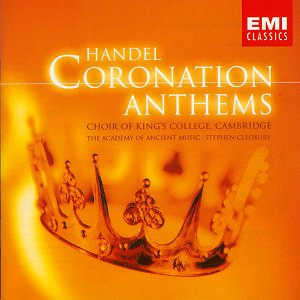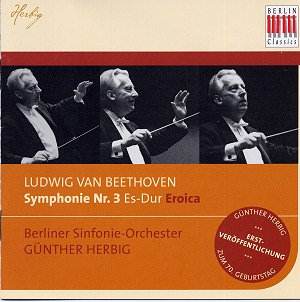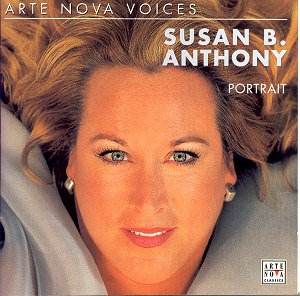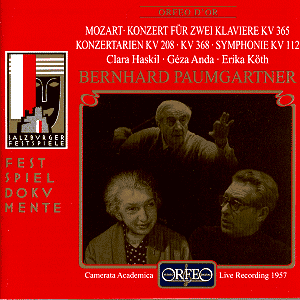 Composer: Georg Friedrich Handel
Composer: Georg Friedrich Handel
Works: Coronation Anthems, Ode for the Birthday of Queen Anne
Performers: Susan Gritton (soprano), Robin Blaze (countertenor), Michael George (bass), Choir of King’s College, Cambridge, Academy of Ancient Music, Pavlo Beznosiuk (director), Alastair Ross (harpsichord continuo), Stephen Cleobury (conductor)
Recording: January 2001, King’s College, Cambridge
Label: EMI
Handel’s choral works hold a prominent place in the canon of Western classical music, particularly his coronation anthems, written to celebrate the royal ascensions of the British monarchy. The most famous among them, “Zadok the Priest,” has become emblematic of grandeur and solemnity, often performed at coronations since its debut in 1727. This recording, under the direction of Stephen Cleobury, not only reaffirms Handel’s genius in crafting music that reflects the weight of historical moments but also showcases the interpretive finesse that the Choir of King’s College, Cambridge brings to these celebrated pieces.
The performance reveals Cleobury’s profound understanding of Handel’s choral textures. The choir’s rich, vibrant sound is particularly effective in the opening movement of “Zadok the Priest,” where the layered harmonies swell with a regal authority. The ensemble’s ability to maintain clarity amidst such grandeur is commendable; the blend of voices is both sonorous and well-defined, allowing individual lines to emerge distinctly even at climactic moments. This is further highlighted in the “Alleluia” from “The King shall rejoice,” where the choir’s robust yet agile execution elevates the piece to a celebratory fervor. Each vocal section, from the soaring sopranos to the resonant basses, is impeccably balanced, ensuring that the intricate counterpoint shines through without losing the overall richness of the sound.
The recording quality merits special mention. The engineering captures the choir’s dynamics beautifully, although there are moments—particularly during the loudest passages—where the sound tends to blur slightly, detracting from the otherwise pristine clarity of the performance. The resonance of King’s College Chapel adds a natural reverb that enhances the choral texture, creating an immersive listening experience that transports one to the very heart of the music. This acoustic environment is ideal for a work like the “Ode for the Birthday of Queen Anne,” where the interplay of solo voices and choir creates a tapestry of sound that feels both intimate and expansive.
Robin Blaze’s countertenor shines in the “Ode,” particularly in “Eternal source of light divine,” where his timbre brings a heavenly quality to the text. Susan Gritton and Michael George complement him well, with Gritton’s soprano delivering a warm, emotive interpretation that articulates the text with clarity and sensitivity. Their collective performance is reminiscent of the historical context of the composition, which serves both as a celebration and a reflection of the royal subject it honors. The structure of the “Ode,” with its varied musical forms and textures, is navigated expertly by the soloists, revealing the depth of Handel’s writing.
Clear delineation between the vocal lines and the instrumental continuo, led by Alastair Ross on the harpsichord, adds a dimension of authenticity to the performance. The instrumentalists provide a buoyant foundation that supports the vocal lines without overshadowing them, showcasing Handel’s masterful orchestration. The choices made by Cleobury and his ensemble reflect a deep respect for the historical performance practice while remaining accessible to contemporary audiences.
The recording stands as a testament to Handel’s enduring brilliance and the interpretative skill of Cleobury and his musicians. It captures the celebratory spirit of the coronation anthems and the reflective beauty of the “Ode for the Birthday of Queen Anne.” With its combination of technical excellence, thoughtful interpretation, and superb sound quality, this release is a noteworthy addition to the repertoire of Handel’s choral works, reaffirming its place in both historical and contemporary contexts.



